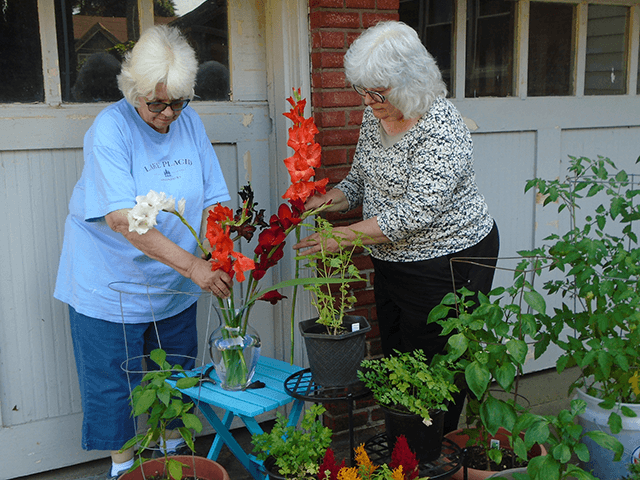
This month we celebrate!
August is an ideal month to celebrate Pope Francis’ encyclical letter Laudato Sí, On Care for Our Common Home.
Why celebrate? Celebration is the quality that requires us to wake up to the present – and bless it. (Joan Chittister in The Monastic Way, July 2023)
In #12 of Laudato Sí we read, "Saint Francis asked that part of the friary garden always be left untouched, so that wild flowers and herbs could grow there, and those who saw them could raise their minds to God, the creator of such beauty. Rather than a problem to be solved, the world is a joyful mystery to be contemplated with gladness and praise."
Isn’t this celebration?
In #220 we read that "conversion …. entails gratitude and gratuitousness, a recognition that the world is God’s loving gift…"
Doesn’t this call for celebration? But why in August?
Christians around the world remember August 15 as the Feast of the Assumption of Mary, and by Orthodox Christians as the Dormition of the Most Holy Mother of God. The feast refers to the Blessed Virgin Mary being assumed — body and soul — into heaven at the end of her earthly life. (Caitlin Kennell Kim in Understanding and Celebrating the Feast of the Assumption)
August is experienced by people around the world as the month of the harvest. Many customs that developed for this month involve harvest in one way or another. In what seems to be a Christianization of an earlier harvest festival, Mary assumed the role of protectress of herbs, flowers, and fruits, particularly grapes and grain.
Since the fourth century August 15 has been celebrated as the Feast of Our Lady of the Harvest. A medieval tradition was to associate Mary with plants of all kinds. This connection is also evident in materials used in the liturgy for Marian Feasts. Mary is compared to flowers. She is associated with herbs, vines, and crops, with their power to heal and sustain life.
August 15 — the Feast of the Assumption — continues to be celebrated as a harvest feast day in many places throughout the world. Fruits, herbs, flowers, plants, and vineyards are blessed. Folk observances from various cultures and ethnic groups are recalled to use in the celebration of this feast. Community events are quite common and several countries consider it a public holiday.
In Poland and other Slavic countries this feast is known as the Feast of Our Lady of Herbs. How appropriate for those who believe that herbs picked in August are the most potent.
In America Poles speak of Our Lady of Flowers. It’s an important time for gathering and blessing gardens, fields, and forest herbs and flowers. It’s a time for singing and dancing.
In Armenia the Sunday nearest to the Feast is set aside for the Blessing of Grapes. Large trays piled high with ripe grapes are carried into the church where they are blessed. Special prayers of thanksgiving are offered for God’s great bounty. Often feasts are held in the vineyards.
In some countries, including Armenia, women named Mary are recognized. Assumption Day is celebrated as the name day feast of all women and girls who are called Mary. Parties and open-houses are enjoyed by the Marys with family, friends, and neighbors.
In the East people commemorate this feast with elaborate ceremonies for blessing fruit trees and grain. In Syria both Moslems and Christians celebrate by offering bouquets of new wheat and small triangular cakes to Mary. Towns may hold processions and festivals with flowers, music, and dancing.
Pastoral theologian and writer Caitlin Kennell Kim speaks of the first fruits — herbs, tomatoes, summer squash, etc. — being associated with the Feast of the Assumption. So appropriate, given the time of year and the celebration of Mary who was the first believer in Jesus to experience the promised resurrection. “She is the first fruit of a great coming harvest.” (“Understanding & Celebrating the Feast of the Assumption” on Busted Halo)
Laudato Sí is to be celebrated. Why not join others throughout the world in celebration of Mary, Our Lady of the Herbs and Flowers — Mary, Our Lady of the Harvest — on August 15. A wonderful connection!
Let’s celebrate!
- How shall we celebrate?
Prepare a festive dinner using the fruits of your garden: your herbs, tomatoes, peppers, zucchini…. Invite family, friends, neighbors…. - Make contact with all the Marys you know. Send them a card. Invite them for tea. Celebrate the feast with them.
- Visit a local vineyard. Experience the aroma of the grapes. Take a walk through the vines. Savor a glass of wine.
- Bless your garden.
